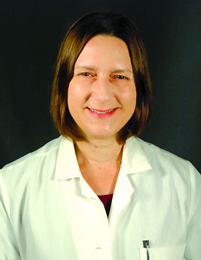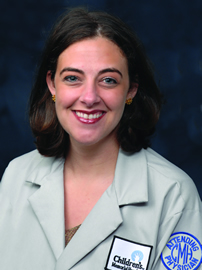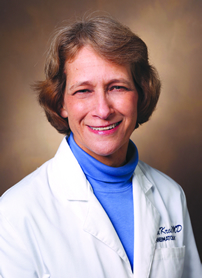Rheumatologic education is moving forward as quickly as rheumatologic treatment.
With continuing funding from the Rheumatology Research Foundation, clinician educators develop a variety of new techniques to push the boundaries of medical education as they develop new techniques to collect, document, and analyze qualitative educational data.

“Rheumatologists are all teachers, whether we are teaching our patients, teaching trainees, or teaching each other,” said Deana Lazaro, MD, Chief of Rheumatology for the VA New York Harbor Healthcare System Brooklyn campus and Director of the Rheumatology Fellowship Program at SUNY Downstate Medical Center. “Teaching is a skill that is essential to our role, and not just for academic rheumatologists. All of us, whether we are giving Grand Rounds or working with patients and colleagues, need to improve our teaching skills. That’s why the Rheumatology Research Foundation created the Clinician Scholar Educator Award in 1999.”
Dr. Lazaro will introduce a Rheumatology Research Foundation Special Session, Innovative Educators, Novel Techniques: A Rheumatology Research Foundation Special Session, on Tuesday afternoon. Three Clinician Scholar Educator awardees will discuss the results of their educational research projects.

Megan Curran, MD, Attending Rheumatologist at the Ann & Robert H. Lurie Children’s Hospital of Chicago and Assistant Professor at Northwestern University Feinberg School of Medicine, launched a comprehensive teaching resource website for pediatric rheumatology. Ouchmyleg.northwestern.edu is intended to fill a yawning gap in pediatric rheumatology education around the world.
“There are only about 350 pediatric rheumatologists in the country,” Dr. Curran said. “Many medical schools and residency training programs don’t have an associated pediatric rheumatologist. The residents in those institutions don’t get much teaching in pediatric rheumatology. That’s where the website can make a difference.”
Ouchmyleg hosts two communities. One is for any physician with an interest in pediatric rheumatology education, the second is specific to chief residents in pediatric rheumatology. Members of both communities can post, share, and reuse pediatric rheumatology teaching materials. Within the Ouchmyleg communities, Dr. Curran also curates a growing online collection of pediatric rheumatology teaching materials posted by other institutions and individuals.
“When I am asked to create a new lecture, it takes a few hours to put together a presentation,” she said. “I created the website because we all need a place to share our materials. When rheumatologists are asked to teach about pediatric topics, we can start with what is already available instead of having to re-create the wheel for every new-to-you presentation.”
Intellectual property concerns are easy enough to deal with, she said. Posting PowerPoint presentations in read-only format or converting presentations to locked PDF format deters casual copying and reuse.

Susan Kroop, MD, Assistant Professor of Medicine at Vanderbilt University Medical Center, created a multi-modal simulated patient encounter for training medical residents. The simulation sessions may be used as an enhancement to the curriculum.
“We created a case-based standardized patient encounter coupled with training in miniaspiration,” Dr. Kroop said. “The goal was to improve residents’ knowledge of and attitude toward rheumatology as well as increase their procedural skills so patients get better care. That’s a step forward for residents, for patients, and for rheumatology. Our initial data shows that residents not only like the program, they improve their medical skills. The next step is to train fellows to use this same model to continue training residents. Our fellows will learn how to become better teachers and improve their own skills. Fellows teaching residents helps to strengthen the bond between them, which creates more enthusiasm for rheumatology.”
Kenneth O’Rourke, MD, Professor of Rheumatology and Immunology, Wake Forest Baptist Medical Center, will explore the long-term rewards of medical education scholarship. His 2002 award focused on promoting socio-economic competency among medical students using a web-based curriculum.
“What is important about the award is gaining protected time to really focus on adult learning and educational practices and enhance medical education at every level,” Dr. Kroop said. “For anyone who teaches, which is just about every rheumatologist, this session can provide new ideas and insights into ways you can improve your teaching or your curriculum.”
